- Free Consultation: (210) 996-3163 Tap Here to Call Us
5 Steps for Adding Digital Assets to Your Estate Plan
Although digital technology has made many aspects of our lives much easier and more convenient, it has also created some unique challenges when it comes to estate planning. If you haven’t planned properly, for example, just locating and accessing all of your digital assets can be a major headache—or even impossible—for your loved ones following your death or incapacity.
And even if your loved ones can access your digital assets, in some cases, doing so may violate privacy laws and/or the terms of service governing your accounts. You may also have some online assets that you don’t want your loved ones to inherit, so you’ll need to take measures to restrict and/or limit access to such assets.
Here are a few of the steps you should take to help ensure your digital assets are properly accounted for, managed, and passed on.
1. Make an inventory: Create a list of all your digital assets, along with their login and password information. Some of the most common digital assets include cryptocurrency, online financial accounts, online payment accounts like PayPal, websites, blogs, digital photos, email, and social media.
Store the list in a secure location, and provide your fiduciary (executor, trustee, or power of attorney agent) with detailed instructions about how to locate and access your accounts. To make them easier to manage, back up any cloud-based assets to a computer, flash drive, or other physical storage device. Review this list regularly to account for any new digital property you acquire.
2. Include digital assets in your estate plan: Just like any other property you want to pass on, detail in your plan who you want to inherit each digital asset, along with your wishes for how the asset should be used or managed. If you have any assets you don’t want passed on, include instructions for how these accounts should be closed and/or deleted.
Do NOT include passwords or security keys in your planning documents, where they can be read by others. This is especially true for your will, which becomes public record upon your death. Instead, keep this information in a separate, secure location, and provide your fiduciary with instructions about how to access it. Consider using digital account-management services to help streamline this process.
If you have particularly complex or highly encrypted digital assets like cryptocurrency, consider including provisions in your plan allowing your fiduciary to hire an IT consultant to deal with any technical challenges that might come up.
3. Restrict access: Include terms in your plan detailing the level of access you want your fiduciary to have to your digital accounts. For example, do you want your fiduciary to be allowed to view your emails, photos, and social media posts before passing them on or deleting them?
4. Include relevant hardware: Don’t forget to include the physical devices—smartphones, computers, tablets—upon which your digital assets are stored in your plan. Having quick access to these devices will make it much easier for your fiduciary to manage your digital assets. And since the data can be transferred or deleted, you can even leave these devices to someone other than the individual who inherits the digital property stored on them.
5. Review service providers’ access-authorization functions: Some service providers like Google, Facebook, and Instagram allow you to give specific individuals access to your accounts upon your death. Review the terms of service for your accounts, and if these functions are available, use them to document who you want to access your accounts.
Double check that the people you named to inherit your digital assets using these access-authorization tools match those you’ve named in your estate plan. If not, the provider will likely give priority to the person named with its tool, not your plan.
Keep Pace With Technology
As technology evolves, you’ll need to adapt your estate plan to keep pace with the ever-changing nature of your assets.
This article is a service of the Law Office of Lasca A. Arnold, PLLC. We do not just draft documents; we ensure you make informed decisions for yourself and the people you love.








